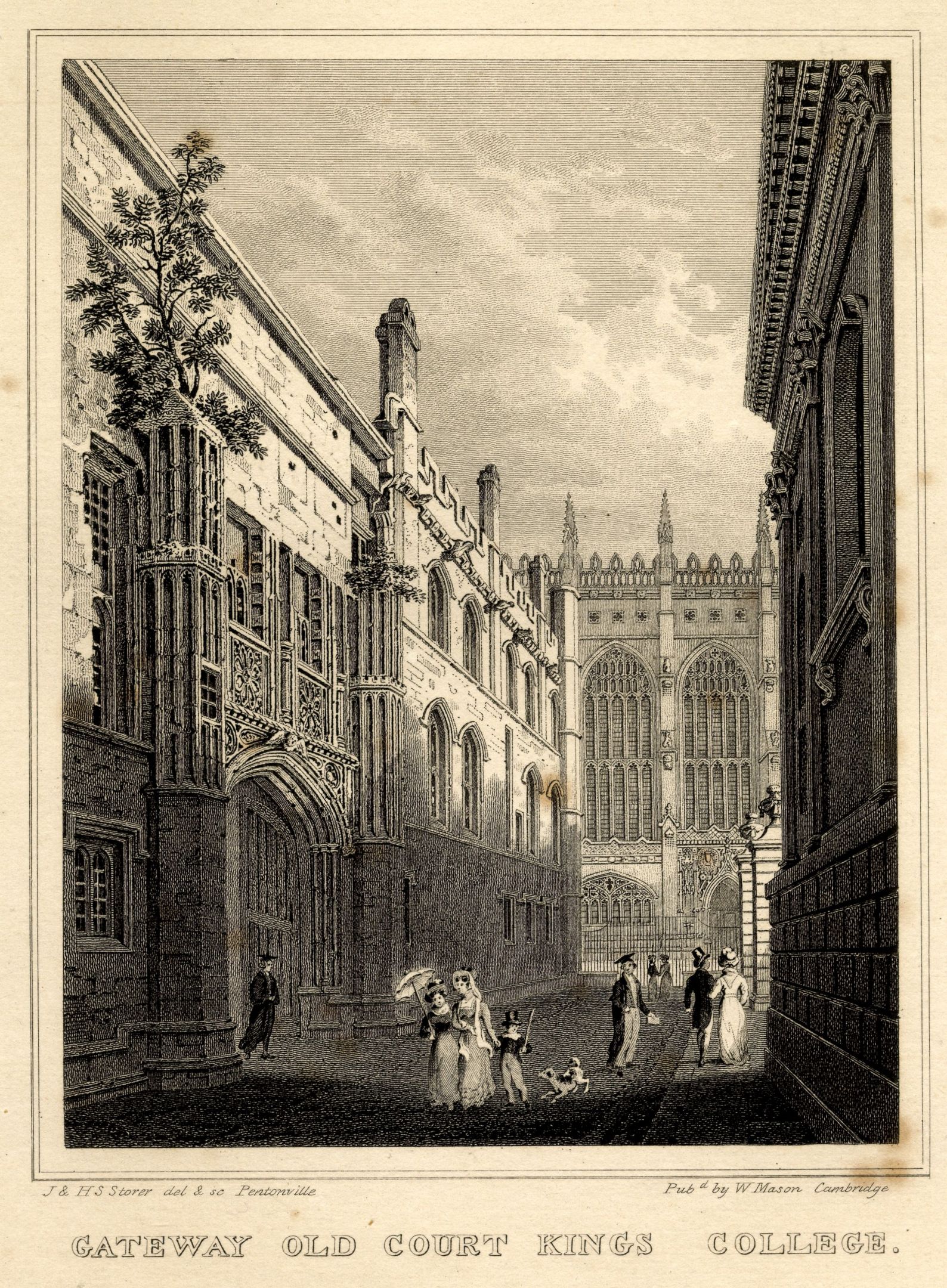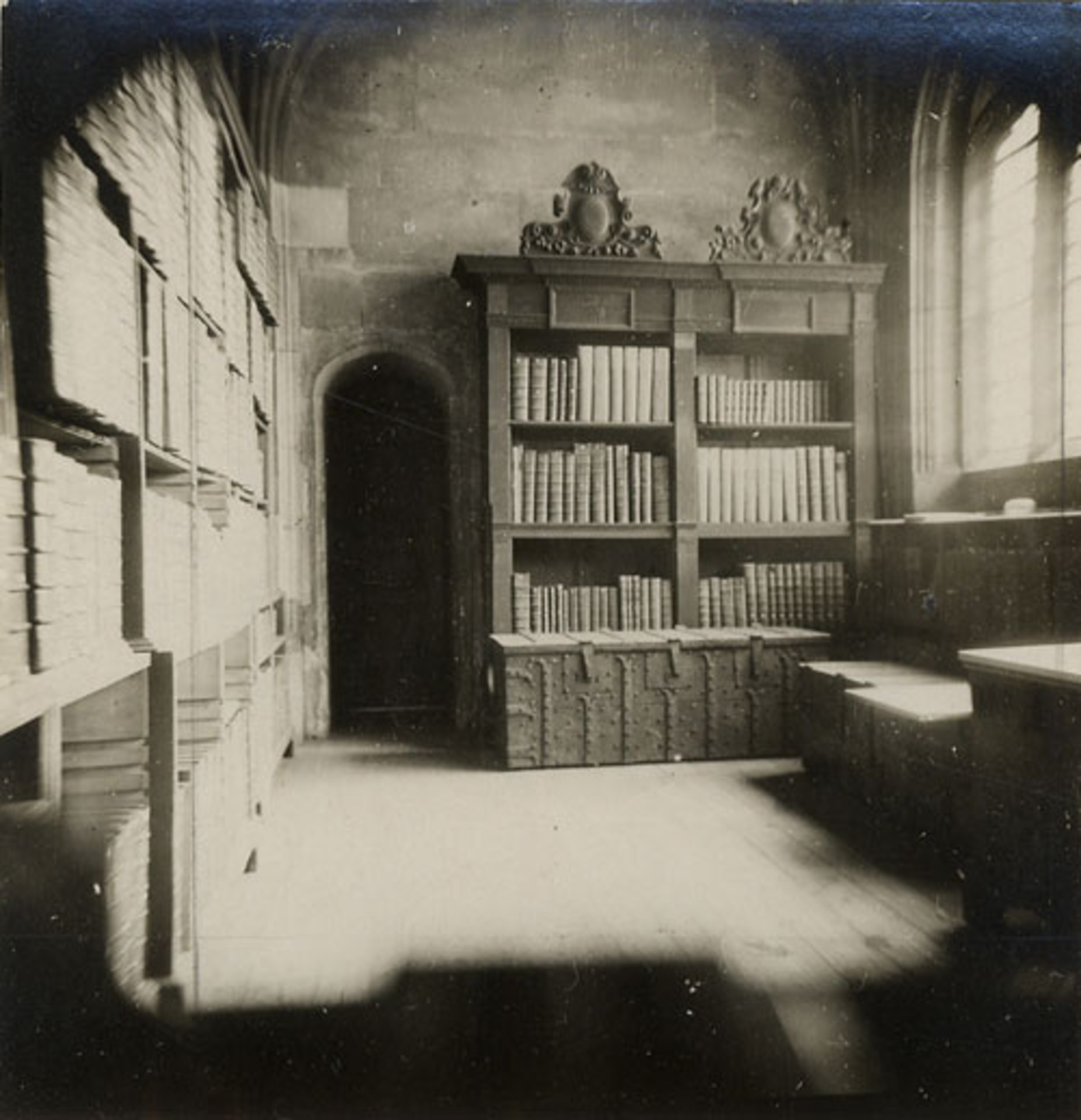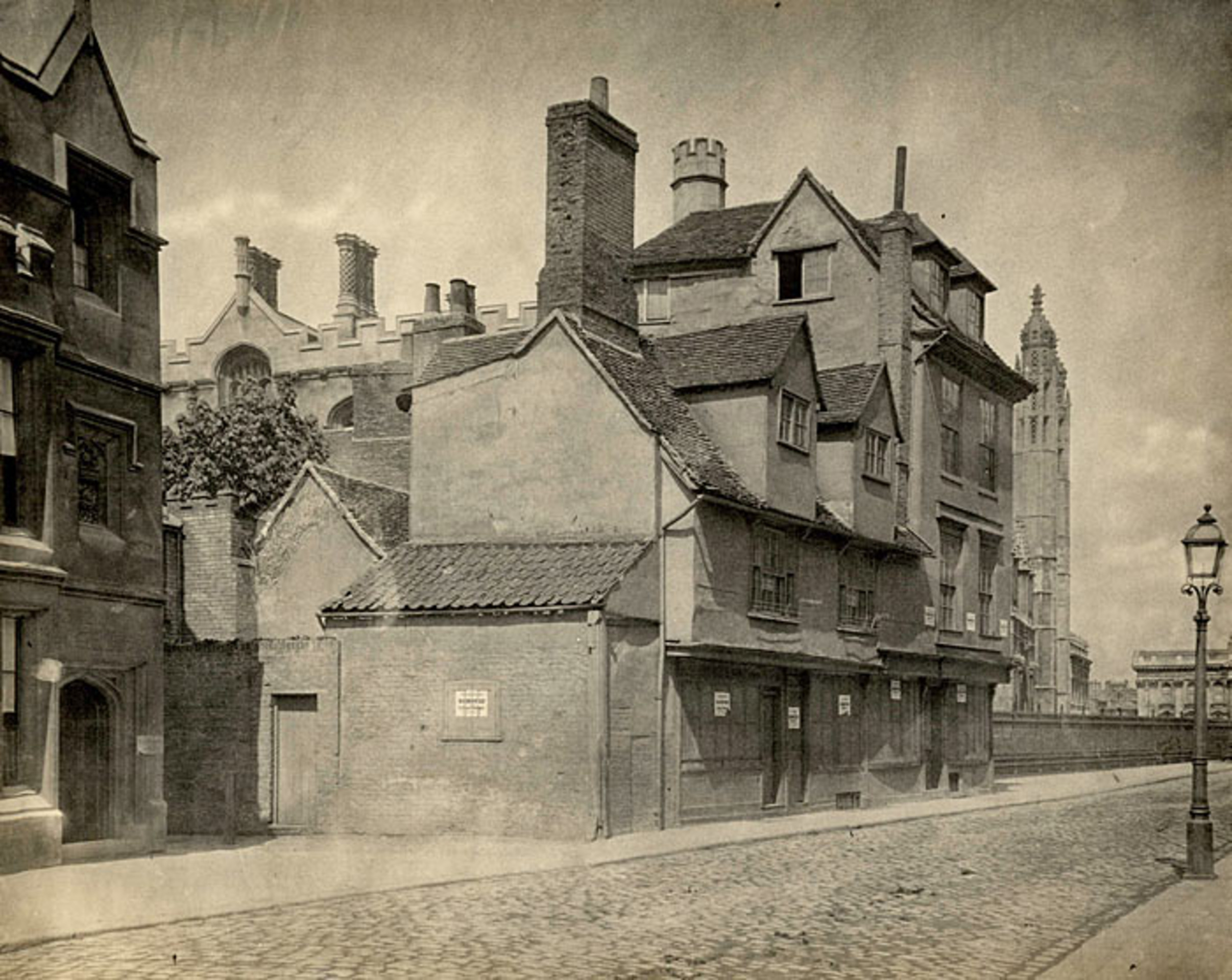Section 5: Using the Reading Room

On this page
So now you know where to find the documents you want to read. What next?
From the document shown below, it seems Rupert Brooke may have damaged a letter which was sent to him by E.M. Forster, by not opening it as he ought to!
With this in mind, it is important to think about how to handle archival documents, which are often very valuable and more fragile than secondary materials.
Did You Know? Archives don’t usually include artefacts, but the papers of Margaret Thatcher do include one of her handbags.
Rules of the Reading Room
Remember that archives are unpublished. They are unique and irreplaceable and require careful handling. They can be fragile. Reading some documents can also require great concentration, depending on the handwriting.
For these reasons, all archive reading rooms have sets of rules relating to how one should consult the documents. This may seem boring and unfriendly but it is simply to ensure there is no risk of damaging documents or disturbing other readers.
Archivists aim to do two things:
- Provide access to archival documents
- Preserve archival documents for future readers
Balancing these two aims can be difficult so we have to ask readers to help by following rules, common to most repositories.
The rules for King’s College Archive Centre are as follows:
Please observe the following rules when consulting material. They are to ensure the protection of our documents, and for the consideration of other readers.
COATS AND BAGS. If you have a coat, please give it to the archivists for storage in the office. Umbrellas should be left in the hallway outside the Reading Room. Bags should be stowed under the window in the Reading Room.
Sign the VISITORS BOOK on arrival each day.
Use a PENCIL ONLY for manual note-taking.
The use of COMPUTERS is allowed if the sound is turned off. Please ask the archivists if you need an international plug adapter; we have fire regulation-compliant units.
Fill in DOCUMENT REQUEST SLIPS to order material. Press firmly so that the reference number is visible on each sheet of the request slip. You may ask for up to five files, bundles or volumes at once, but must consult them one at a time.
REQUESTED ITEMS will be weighed for document control and left on the windowsill for you to take, one at a time, as you are ready. Take each file or volume in turn to the table to look through it.
Please handle manuscript material with CARE:
- Lay documents flat on the table and use foam book-rests for bound volumes.
- Do not mark or lean on the papers or volumes.
- Do not set your notes or other personal effects on documents or volumes.
- Tracing of maps or other documents is not allowed.
- Do not lick your fingers when turning pages.
- Ensure that documents are returned to the same file, in the same order, that you received them.
- Do not remove items for photocopying; please request acid-free paper slips from the archivists for marking the pages to be copied.
DO NOT EAT, DRINK, chew gum or smoke anywhere in the library building. Bottles of water with screw-on caps are allowed in the library building outside the Reading Room.
Turn your MOBILE PHONES OFF unless they are being used for photography. In any case they must be silent.
PHOTOGRAPHY is permitted under certain conditions which are given on the licence form, available from the archivists.
THE ARCHIVISTS WILL GLADLY GIVE YOU ANY INFORMATION OR ASSISTANCE
Some of these rules are almost universal, being used in all reading rooms, for example the use of pencils instead of ink and the ban on food and drink. These rules are intended to prevent accidental damage to documents.
You might have expected to see a rule that white gloves must be worn. White gloves are seen more often on television than in reading rooms. They are not required at King’s College.
We do ask people to handle documents very carefully though and to lay documents flat on the table or on a book rest, to prevent excessive handling and stress on the paper.
Many archives allow readers to take photographs. Why doesn’t King’s College Archive Centre?
- The sound of photographs being taken can disturb other readers.
- Not all of the documents we hold are actually owned by us.
- Most of our readers consult the personal papers. Many of the documents in these collections are still in copyright.
Did You Know? When somebody visits a county record office for the first time they are usually asked to register and given a CARN card. This stands for County Archive Research Network. The card allows them to use similar record offices throughout England and Wales.
Notes and Citations
Reference numbers
When you request an item, keep a note of the reference number. That way, if you need to see it again you can easily work out what to ask for. Even take a note of the reference numbers of files you look at which aren’t interesting, if only so that you don’t request them again.
When you take notes on the information in a particular file or item, always include the reference number with your notes.
Transcripts
One particularly effective way of taking notes in archives is to produce transcripts, remembering to note the reference number of the document. Transcription involves copying a document word for word, whereas translation requires you to change the language. Although transcription may seem a lot of hard work, it is particularly useful if you intend to quote directly from the document, rather than describe it.
In later sections, you will see transcriptions produced by an archivist wherever it has not been possible to show an image of the original document, as well as alongside images of originals which may be difficult to read.
Photos
If you choose to take photographs and the person invigilating in the reading room (usually an archivist or archive assistant) allows you to do so, remember that you will need to work out a way of being able to identify what documents the photographs show when you get home.
To get around this, people sometimes choose to write the reference number on a separate piece of paper and include it in the photograph alongside the document (remember not to mark the archival document itself). Archival documents are usually labelled on their packaging, and sometimes on the first page, but rarely on every page.
Citations
When you write an essay, you have to cite the books you have used in a references section or bibliography at the end. Similarly, when you use archives you should cite them. We recommend citing them using the name of the repository, followed by the reference number. If your teacher advises another form of citation, you should do as they suggest. For example a particular letter from D.H. Lawrence to E.M. Forster (see Section 4) should be cited as ‘Archive Centre King’s College, Cambridge, EMF/18/311/1. Letter dated 10 September 1924’.
Look at the examples below and the way they have been cited. It is the information which matters, not the way it appears. Anybody reading your essay (or blog etc.) should be able to tell from your citations where they need to visit and what they need to ask for if they want to see the original document.
Citing an image
Please see the image at the bottom of this section.
Citing a quote
If I was quoting from a document, rather than showing an image of it, I’d include short quotes within the paragraph with the reference number in brackets afterwards, for example ‘I work for a Government I despise for ends I think criminal.’ (British Library. MSS. 57931 fo. 119).
Another style always used for longer passages is to have the quote inset and the reference number just below:
I work for a Government I despise for ends I think criminal.
British Library. MSS. 57931 fo. 119
You will probably need to include details about the context in which the document you are quoting from was written. For example, in the quote above, it is important to note that it was written in a letter sent from John Maynard Keynes, the economist and famous Kingsman (alumni of King’s College, Cambridge), to his friend Duncan Grant, an artist and conscientious objector, in December 1917. At the time, Keynes was working for the Treasury.
Handling Documents
When you are in a library, you are likely to flick through pages of a book very quickly until you find what you want, or photocopy parts of it to write on. You may may press the spine of a book directly onto the table to keep it open and take notes in ink. You may even take books home and read them with a cup of coffee on the table next to you. Archives have to be handled a little more carefully.
There are a few reasons why archives have to be handled carefully. The main reasons are:
- Archives may be more fragile than the books you are used to using.
- They are usually unique so we can’t replace them if they get damaged!
- They should be kept in their original order.
In image 1 (below), the reader is looking at one file and maintaining the original order by carefully turning the page over when he has read it, creating two neat piles. He is taking notes in pencil, not pen. He is keeping his notes separate to the archival papers and is not leaning on the archives. He could have chosen to use a laptop instead of taking notes in pencil. His hands are clean and his desk uncluttered.
In image 2 (below), the same reader is looking at a bound volume (the term ‘volume’ is used for anything bound like a book, whether published or not). The volume’s spine is fragile so he is using a book rest. In order to avoid excessive handling of the volume, he is using weights to hold the page. Again, he is taking notes in pencil.
Did You Know? Some archivists might ask you to wear white gloves to protect documents from the acids on your hands.






